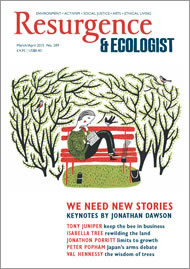In a manner that some might find startling, Shakespeare opened Sonnet 107 with an almost casual reference to “the prophetic soul of the wide world dreaming on things to come”. He felt free to do so because he knew that his audience required no further explication of the image, for the idea, or rather the experience of the world-soul had been integral to human understanding of the animate nature of the universe since long before Plato gave it coherent intellectual form in his Timaeus.
For a long time, of course, particularly in the Western world, that has not been the case. In the century after Shakespeare’s death, Newton’s formulation of the laws of motion and gravitation laid the groundwork for classical mechanics, while Locke advanced a theory of mind that would eventually out-muscle soul as a serious explanation for the continuity of consciousness. Such developments were perhaps essential steps in accounting for the behaviour of matter and in the wider evolution of consciousness. Certainly they laid foundations for the world we currently inhabit; but as Thomas Berry insisted 25 years ago, our view of our relationship to the universe is also “a question of story”, and “we are in trouble just now because we do not have a good story”.
Fortunately, in recent years some of the best thinking to come out of America has worked hard to remedy that deficiency, and the imaginative intellectual efforts of such luminaries as Berry, Roszak, Tarnas, Bly and Hillman are now joined by David Fideler’s lucid account of how our relations with the Soul of the World might be restoried and thus restored.
Those of us who care about such matters are already indebted to Fideler for the influential publications of the Phanes Press, which he founded, and for the stimulating essays he published as founding editor of Alexandria: The Journal of the Western Cosmological Traditions.
In the introduction to his book Fideler remarks how, in the life of each individual, the primal state of innocent wonder diminishes with the gradual acquisition of the powers that come from increased objective control, in a manner that mirrors historical changes in the perspectives of consciousness. The structure of the book then follows an archetypal pattern akin to that with which Owen Barfield identified three stages in the evolution of consciousness: the movement from a state of original participation in the natural order (as in the life of traditional cultures) into withdrawal from that participation (as demonstrated by the scientific method) and on to what Barfield calls a state of final participation, which seeks a creative relation between the analytic power of the mind and the natural order that is its home. Fideler might prefer the epithet restored to describe this new confluence of the human soul and the soul of the world.
Fideler gazed as a child at the mystery of the night sky, and his mature work as a student of Greek philosophy and Mediterranean religions complemented that sense of wonder to qualify him as a guide to the ancient world’s sacred view of the cosmos. He has a musician’s understanding of harmony too, and as educator, writer and publisher he is an activist of an order that makes him both an eloquent exponent of what Berry called “the new story”, and an exemplar of its transformative potential; perhaps also of the shape that Barfield’s projected state of “final participation” might be beginning to take in our time.
Fideler quotes T.S. Eliot, asking: “Where is the wisdom we have lost in knowledge? Where is the knowledge we have lost in information?” His book reliably points us towards the answers we urgently need.







